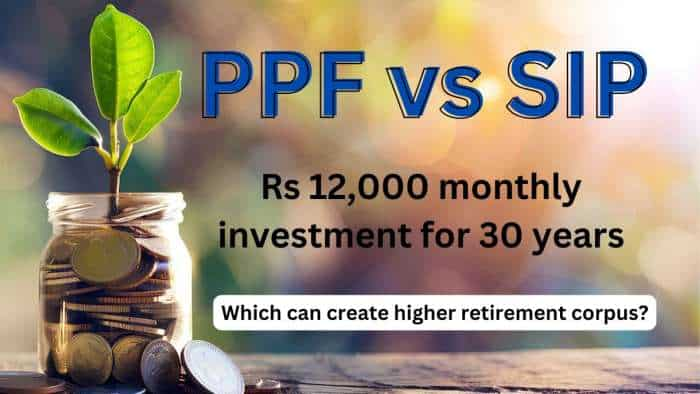Income Tax Calculator: Want to save money while filing ITR? Top 10 tax-saving investments other than Section 80C that can help you
Income Tax Calculator: When it comes to paying taxes, we all give our best to reduce our tax liability for each financial year.

Income Tax Calculator: When it comes to paying taxes, we all give our best to reduce our tax liability for each financial year. If you have taken one step further to look into tax-saving investment options, you might be familiar with Section 80C of the Income Tax Act, 1961. Being one of the most popular tax-saving options, most individuals claim deductions under this section to lower their taxes. It facilitates deductions of up to Rs 150,000 per annum. However, it might not be adequate to meet your financial goals which make it only natural for you to look tax-saving benefits beyond Section 80C limit.
As per the Income Tax Act, 1962; there are certain clause that allow you tax-saving investments beyond the maximum limit available under Section 80C. Apart from helping you, these tax-saving investment options help you to reduce the tax burden. Tax and investment experts say these investment options might even have a positive impact on your financial planning.
See Zee Business Live TV streaming below:
1] National Pension Scheme (NPS): Under Section 80CCD, you can invest an additional Rs 50,000 in this scheme apart from the contribution of Rs 150,000 available under Section 80C. In short, you can claim a total deduction of up to Rs 200,000 in each financial year by investing in NPS.
2] Interest payment of home loan: The payment of interest part of a home loan is eligible for tax benefit under Section 24 of the Income Tax Act, 1961. In case the property is occupied by the person taking the home loan, the maximum limit under this section is Rs 200,000. However, if you are not staying in the property and is rented out then there is no maximum limit, allowing you to claim the whole interest amount as a tax deduction.
3] Interest payment of the home loan for first-time buyers: You can avail of a tax benefit of Rs 50,000 under Section 80EE if you are a first-time homeowner. This amount is the above the tax deduction of Rs 200,000 that can be claimed for home loan interest repayment under Section 24. The criteria to avail of this deduction are that the total value of the house should be below Rs 50 lakhs, and the loan amount should be Rs 35 lakhs or less. Furthermore, the home loan should have been sanctioned between 1st April 2016 and 31st March 2017.
4] Interest payment of the home loan for first-time buyers: If you are a first-time homeowner then you can claim a deduction of up to Rs 150,000 under Section 80EEA. This amount is above the tax benefit of Rs 200,000 for repayment of home loan interest under Section 24. The criteria to avail of this deduction are that the stamp duty value of the house property should be below Rs 45 Lakhs. Furthermore, the home loan should have been sanctioned between 1st April, 2019 and 31st March, 2020.
5] Interest paid on loan taken for the purchase of an electric vehicle: Under Section 80EEB, you can claim a tax deduction of up to Rs 150,000 for the interest repayment for a loan taken for the purchase of an electric vehicle. To be eligible, the loan should have been sanctioned between 1st April 2019 and 31stMarch 2023.
6] Interest earned from a saving bank account: A deduction of up to Rs 10,000 can be claimed under Section 80TTA for interest earned from a saving bank account with a banking company, a post-office or a co-operative society engaged in the business of banking.
7] Interest earned by senior citizens from deposits:Under Section 80TTB, a senior citizen can claim a maximum of Rs 50,000 as interest received from deposits with a bank or a post office or a co-operative bank.
8] Long-term capital gain on sale of the residential house: An Individual or a HUF can claim an exemption under section 54 if the capital gain is invested to purchase a new residential house within one year prior to the date of sale or two years after the date of sale of the original house or construct a new house within a period of 3 years from the date of sale of the original house.
9] Long-term capital gain on the sale of land, building or both: This exemption is available if the capital gain is invested in bonds of NHAI or REC or other specified bonds by the Central Govt., within 6 months from the date of sale of the original asset. The maximum exemption allowed under this section is Rs 50 lakh.
10] LTCG on Capital Asset: Long-term capital gain on the sale of a capital asset other than a residential house An Individual or a HUF can claim an exemption under section 54 if the capital gain is invested to purchase a new residential house within one year prior to the date of sale or two years after the date of sale of the original house or construct a new house within a period of 3 years from the date of sale of the original house.
After claiming tax deductions of Rs 50,000 under Section 80C, these tax-saving options can further help you reduce your tax outgo. When making decisions related to saving taxes, your primary goal should be financial stability. Hence, make sure that you avoid any pitfall and keep yourself updated about all the practical measures to save taxes.
(Authored by Kapil Rana, Chairman and Founder at HostBooks Limited)
Get Latest Business News, Stock Market Updates and Videos; Check your tax outgo through Income Tax Calculator and save money through our Personal Finance coverage. Check Business Breaking News Live on Zee Business Twitter and Facebook. Subscribe on YouTube.
RECOMMENDED STORIES

SIP in Stocks For New Year 2025: Market guru Anil Singhvi recommends 1 largecap, 2 midcap scrips to buy in dips; note down targets

PPF vs SIP: Rs 12,000 monthly investment for 30 years; see which can create higher retirement corpus

Largecap, Midcap Stocks To Buy: Analysts recommend buying L&T, Tata Motors, 3 other stocks for 2 weeks; check targets

Power of Rs 15,000 SIP: How long it will take to achieve Rs 7 crore corpus? See calculations to know
11:25 AM IST










 Zomato gets Rs 803.4 crore tax demand from GST authorities
Zomato gets Rs 803.4 crore tax demand from GST authorities  Income tax refunds jump 46.3% to Rs 3.04 lakh crore in April-November
Income tax refunds jump 46.3% to Rs 3.04 lakh crore in April-November No proposal on income tax relief for senior citizens under consideration: Centre
No proposal on income tax relief for senior citizens under consideration: Centre  Income tax return filer base up 2.2 times in 10 years, 5 times growth in Rs 50 lakh-plus income category: Sources
Income tax return filer base up 2.2 times in 10 years, 5 times growth in Rs 50 lakh-plus income category: Sources  This is India's only tax-free state, residents earn crores without paying Income Tax
This is India's only tax-free state, residents earn crores without paying Income Tax